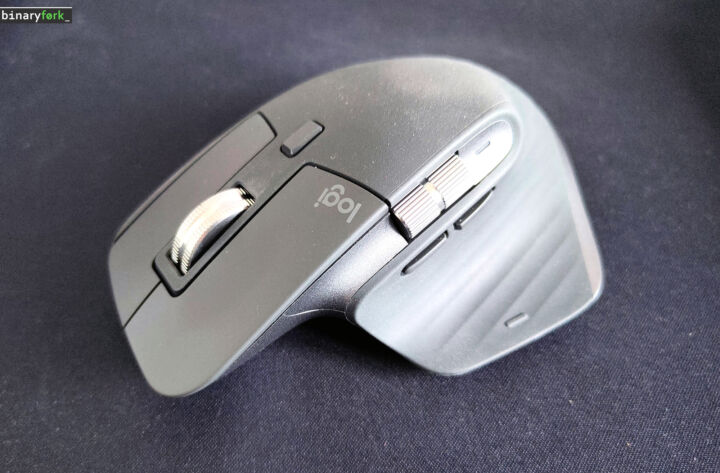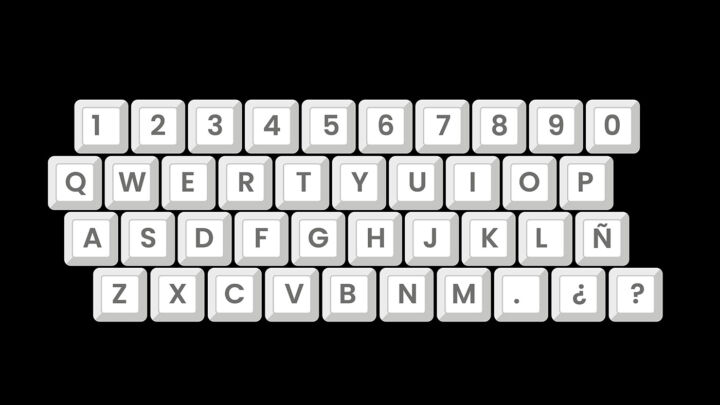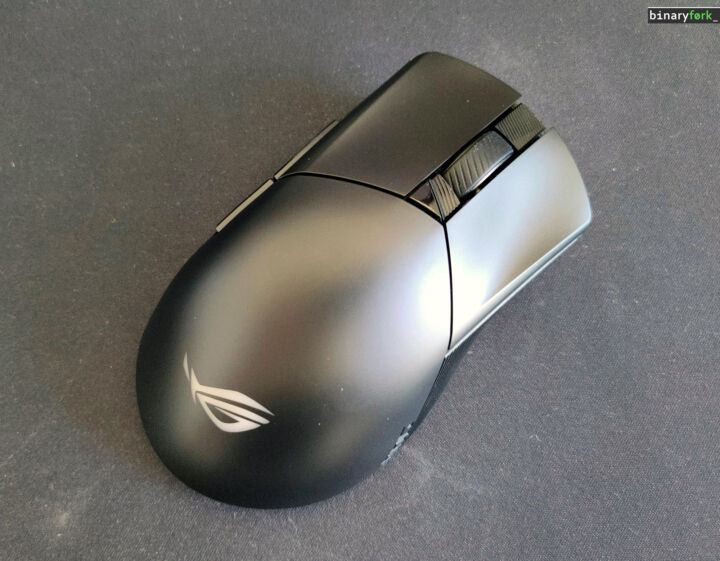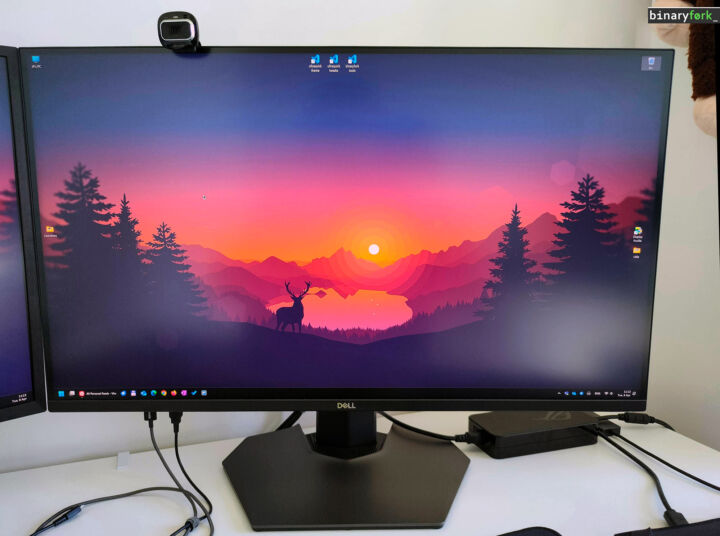- If you’re looking for an ergonomic mouse that’s truly silent you can’t go wrong with the Logitech Lift Vertical.
- There’s a lot to like about this mouse, especially if you have small or medium hands.
- Read on and find out if this is going to be your next office mouse.
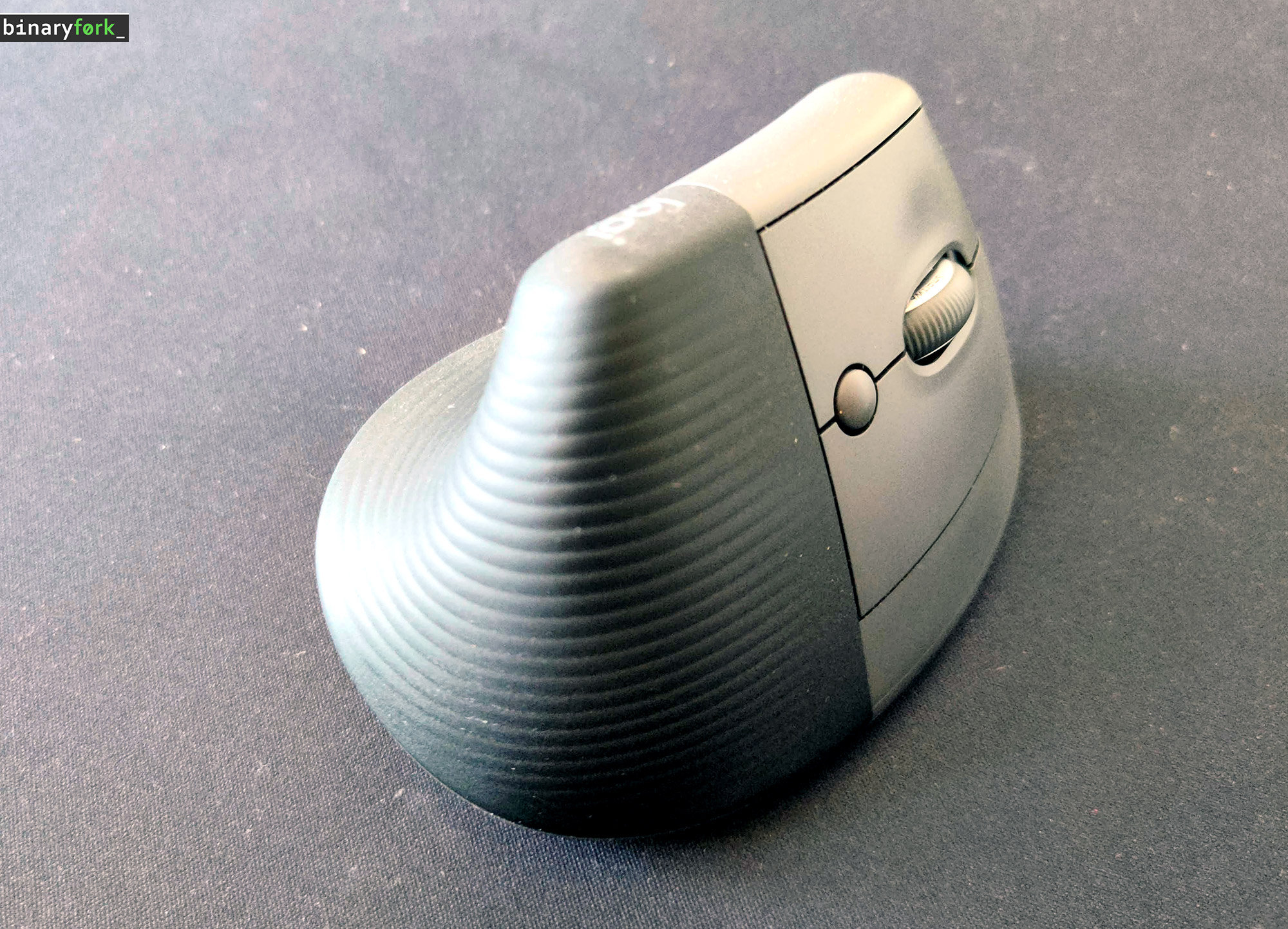
If you’re reading this, you’re probably tired of wrist pain, curious about vertical mice, or just want to know if the Logitech Lift Vertical is worth the hype.
My girlfriend has spent a year already with the Logitech Lift Vertical mouse, and let me tell you: this isn’t just a quirky office gadget. It’s a surprisingly thoughtful piece of kit that might just change how you feel about mousing, especially if you spend hours at your desk.
Let’s dive directly into specs, build, ergonomics, design, performance (office and gaming), and connectivity – plus a few real-world surprises I found along the way.
Disclaimer: this review is based mostly on my girlfriend’s impressions after one year of use. I have just used it for a few hours, to double-check a few things.
CONTENTS
What makes the Logitech Lift special
The Lift isn’t just another vertical mouse thrown into an oversaturated market. At around $70 when not discounted, the Logitech Lift is an excellent premium vertical wireless mouse for folks with smaller hands, positioning itself as an accessible entry point into ergonomic computing in Logitech’s lineup.
Vertical mice like the Lift are especially ideal if you have wrist, arm or shoulder problems. This model is both cheaper and more compact than the popular MX Vertical (see on Amazon). This positioning is crucial because vertical mice have traditionally been bulky, expensive affairs that intimidated newcomers to ergonomic peripherals.
The second point I need to mention, and is an equally important one, is that the Logitech Lift uses silent clicks. Yes, when you click the two main buttons, you really need to put your ear next to the switches to hear them in an office room during the day. Yes, you can hear them in a very silent environment, but they’re surprisingly quiet. Take a listen:
And now compare them with my Logitech G602 gaming mouse:
I was seriously impressed to the point where I ordered the Logitech MX Master 3S for myself. It was the last piece of the noise puzzle in our shared work from home office space. Now I have to do something about that loud breathing 🙃
Silent clicks should be a default requirement for office mice.
Technical specs
Here’s a quick rundown of what you get when you buy the Logitech Lift Vertical Ergonomic mouse:
| Sensor Technology | Logitech Advanced Optical Tracking |
| DPI Range | 400 – 4000 DPI (adjustable in 100 DPI increments) |
| Buttons | 6 (Left/Right-click, Back/Forward, Middle button, Scroll-wheel with middle click) |
| Customization App | Supported by Logi Options+ (Windows, macOS) |
| Battery Type | 1x AA battery (included) |
| Battery Life | Up to 24 months |
| Connection Types | Logi Bolt USB receiver (included) Bluetooth Low Energy |
| Wireless Range | Up to 32.8 ft (10 m) |
| Bluetooth Compatibility | Windows 10/11 or later, macOS 10.15 or later, iPadOS 14 or later, ChromeOS, Linux, Android 8 or later |
| USB Receiver | Logi Bolt USB Receiver |
| Dimensions (HxDxW) | 4.25 in (108 mm) x 2.7 in (70 mm) x 2.8 in (71 mm) |
| Weight | 4.4 oz (125 g) |
The 4,000 DPI might seem modest compared to gaming mice that boast 25,000+ DPI, like the recently tested ASUS ROG Gladius III Aimpoint, but for office work and general productivity, it’s more than sufficient.
I rarely find myself needing to go beyond 1,500 – 2000 DPI for daily tasks on my two 32 inch 4K monitors. I reckon that on smaller lower resolution displays you will probably be satisfied with 1200 DPI or even lower values.
Construction quality and build materials
Here’s where Logitech’s experience really shows its strenghts. The Lift feels well-made and comfortable in the hands. The soft-touch plastic are perfect for resting your minimally twisted wrist right inside. The build quality strikes that sweet spot between premium feel and cost-effectiveness.
The mouse features a matte finish that resists fingerprints reasonably well, though it’s not completely immune to showing wear over time. The soft-touch rubbery coating provides excellent grip without feeling sticky or attracting lint like some rubber-coated peripherals do.
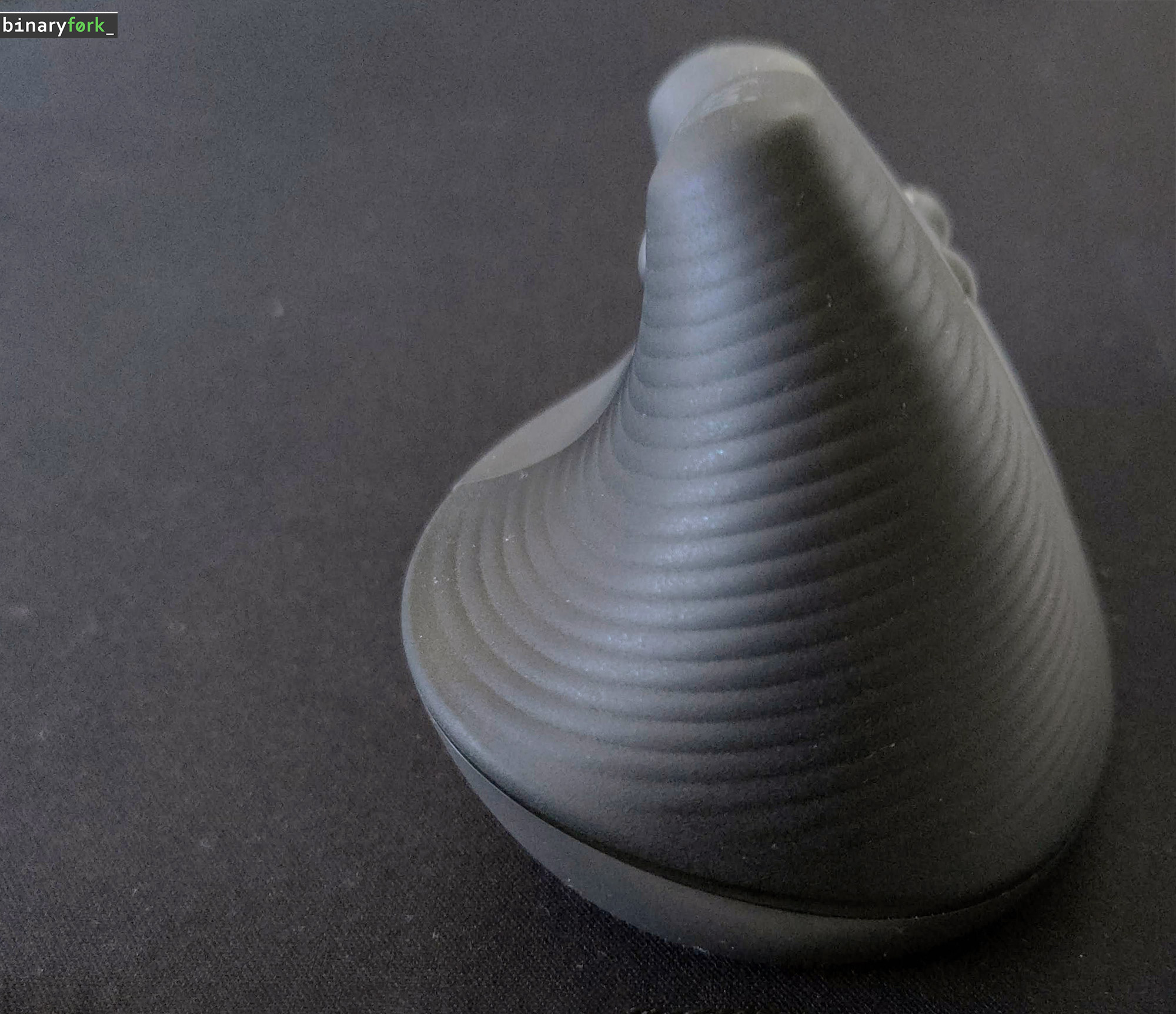
Durability ratings include 5-million clicks for the left and right buttons, which should easily handle several years of heavy use. Note that that’s a bit low compared to aftermarket mouse switches that go as far as 100-million clicks.
It’s probably due to the nature of how the silence is achieved. Nonetheless, you shouldn’t have to worry about click durability at least for a couple of years of intense use.
The scroll wheel feels precise with well-defined steps, and the side buttons have a satisfying tactile response without being overly stiff.
One minor gripe: the removable battery panel on the bottom feels slightly flimsy compared to the rest of the construction because it’s magnetic. It’s functional and hasn’t caused any issues, but it doesn’t inspire the same confidence as the main body.
Ergonomics and comfort analysis
This is where the Lift truly shines. It took me approximately five minutes to get used to the grip and using the two left and right buttons and slide wheel, which are on the side rather than sitting on top of the mouse. The learning curve is basically non-existant.
The 57-degree angle positions your hand in what ergonomists call the “handshake position” – imagine you’re about to shake someone’s hand, and that’s roughly how your hand sits on the Lift. This position significantly reduces pronation (the twisting motion that causes wrist strain with traditional mice).
Comfort highlights:
- Natural wrist alignment reduces strain
- Thumb rest provides stable grip point
- Designed as a great fit for small to medium hands
- Available in both right and left-handed versions
Potential drawbacks:
- May feel awkward initially for traditional mouse users
- Requires desk space adjustment due to different grip style
- Not ideal for users with larger hands
The reason my girlfriend wanted a vertical mouse was because minor writs pains started to show, so she wanted to do something before it became a real problem.
According to her words: the transition period was about a week of muscle memory adjustment, but the ergonomic benefits became apparent almost immediately.
Design and aesthetics
Logitech nailed the visual design with the Lift. The Logitech Lift is smaller and lighter than Logitech’s previous vertical mouse, making it less intimidating and more desk-friendly than its predecessors.
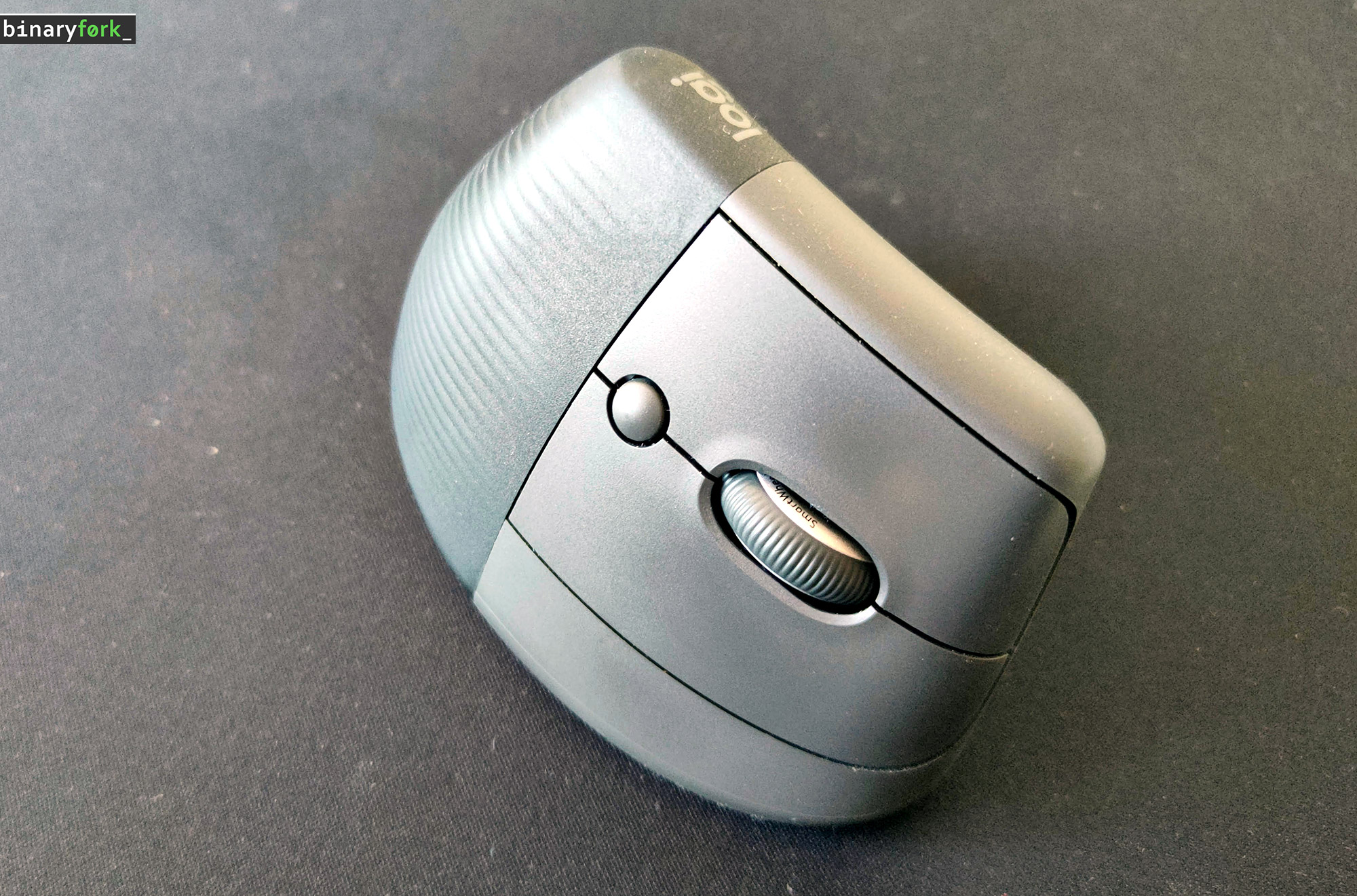
The color options are thoughtfully chosen:
- Graphite (dark gray) – professional and understated
- Off-White – clean and modern
- Rose – adds personality without being garish
The LED indicators are subtle unlike what you’re used to from gaming mice for a simple reason: there’s only one LED on the buttom of the mouse, used to show the connection status of the mouse.
I’d say the overall aesthetic is clean and modern, fitting well in both home offices and corporate environments.
Office performance evaluation
For productivity work, the Lift excels. The vertical design intended to keep your hand, wrist, and arm in a more neutral position pays dividends during long work sessions. Document editing, web browsing, and general office tasks feel natural after the initial adjustment period.
The programmable buttons integrate well with productivity workflows. You have to use the Logi Options+ app, but it’s possible to set different actions for the mouse buttons depending on what app is active.
I’ve customized mine for:
- Forward/back browser navigation
- Copy/paste shortcuts
- Zoom in/out for document review
- Mute mic during video calls
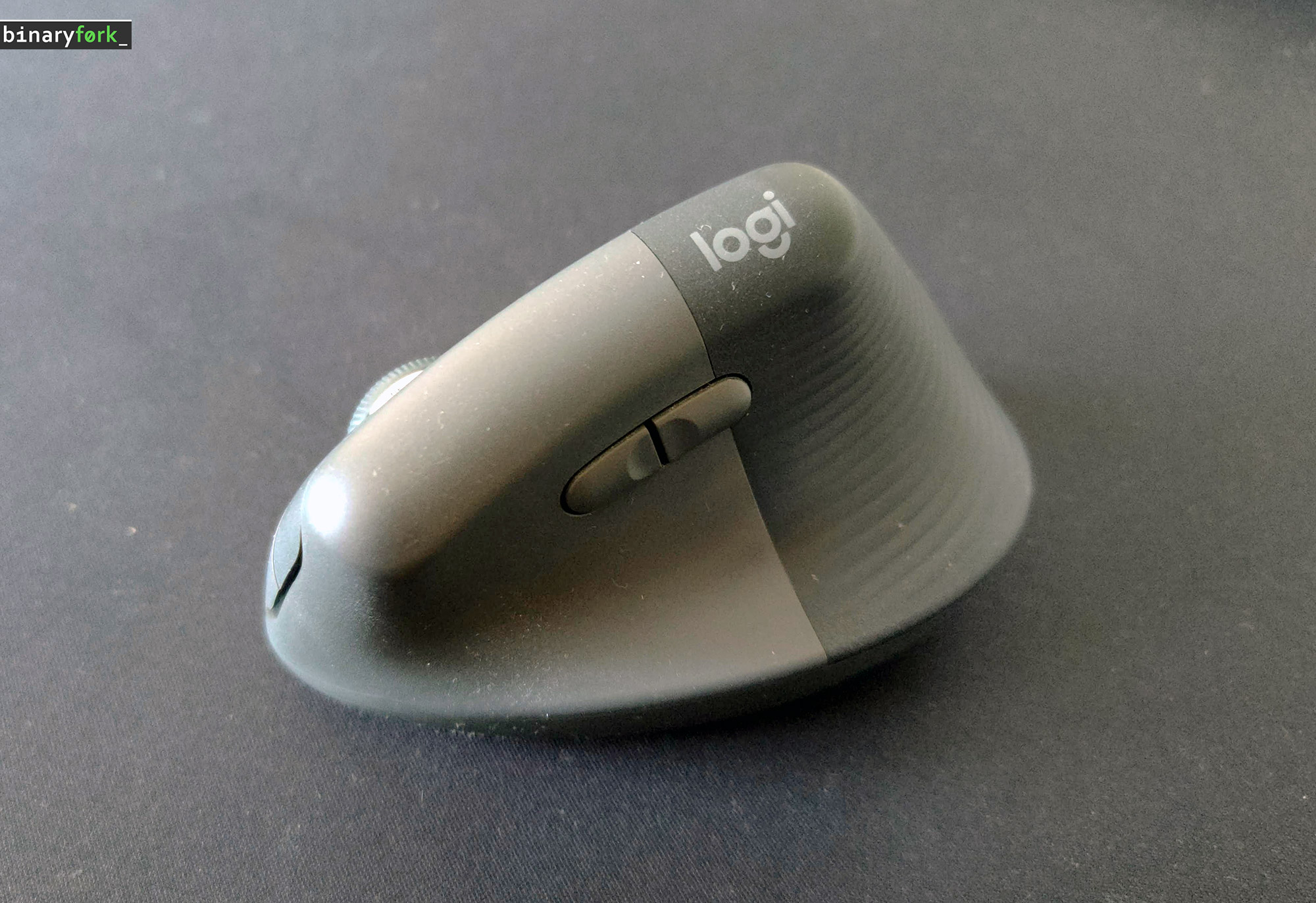
The scroll wheel performs admirably for document navigation, though it lacks the free-spin mode found in Logitech’s premium MX series. For most users, the standard stepped scrolling is perfectly adequate.
Battery life lives up to the claimed 24 months in real-world testing. After a year of use the mouse still uses the original battery. What more could you want?
Gaming performance assessment
Let’s be honest – the Lift isn’t designed for gaming, and it shows. While it offers smooth tracking, the ergonomic design prioritizes comfort over gaming performance.
Gaming limitations:
- A 4,000 DPI sensor is just too old.
- Polling rate is limited to 133 Hz on the Bolt receiver and 90 Hz on Bluetooth.
- Vertical grip affects muscle memory for competitive gaming
- Button placement isn’t optimized for rapid-fire clicking
- Heavier than dedicated gaming mice at 125g
Where it works for gaming:
- Strategy games and turn-based titles
- Casual gaming sessions
- MMORPGs with less emphasis on quick reflexes
- Any gaming scenario where comfort trumps performance
If you’re primarily a gamer, stick with a traditional gaming mouse. But if you work long hours and game occasionally, the Lift offers a reasonable compromise that prioritizes your long-term wrist health.
Connectivity options and setup
The Lift offers two connection methods, both rock-solid in my experience:
Bluetooth connection:
- Easy pairing with modern devices
- No dongle required
- Supports up to three device connections
- Compatible with Windows, macOS, Android, Linux, and iPadOS
USB receiver:
- Included Logi Bolt receiver
- More stable for gaming or high-performance tasks
- Plug-and-play setup
- Stores inside the mouse when not needed
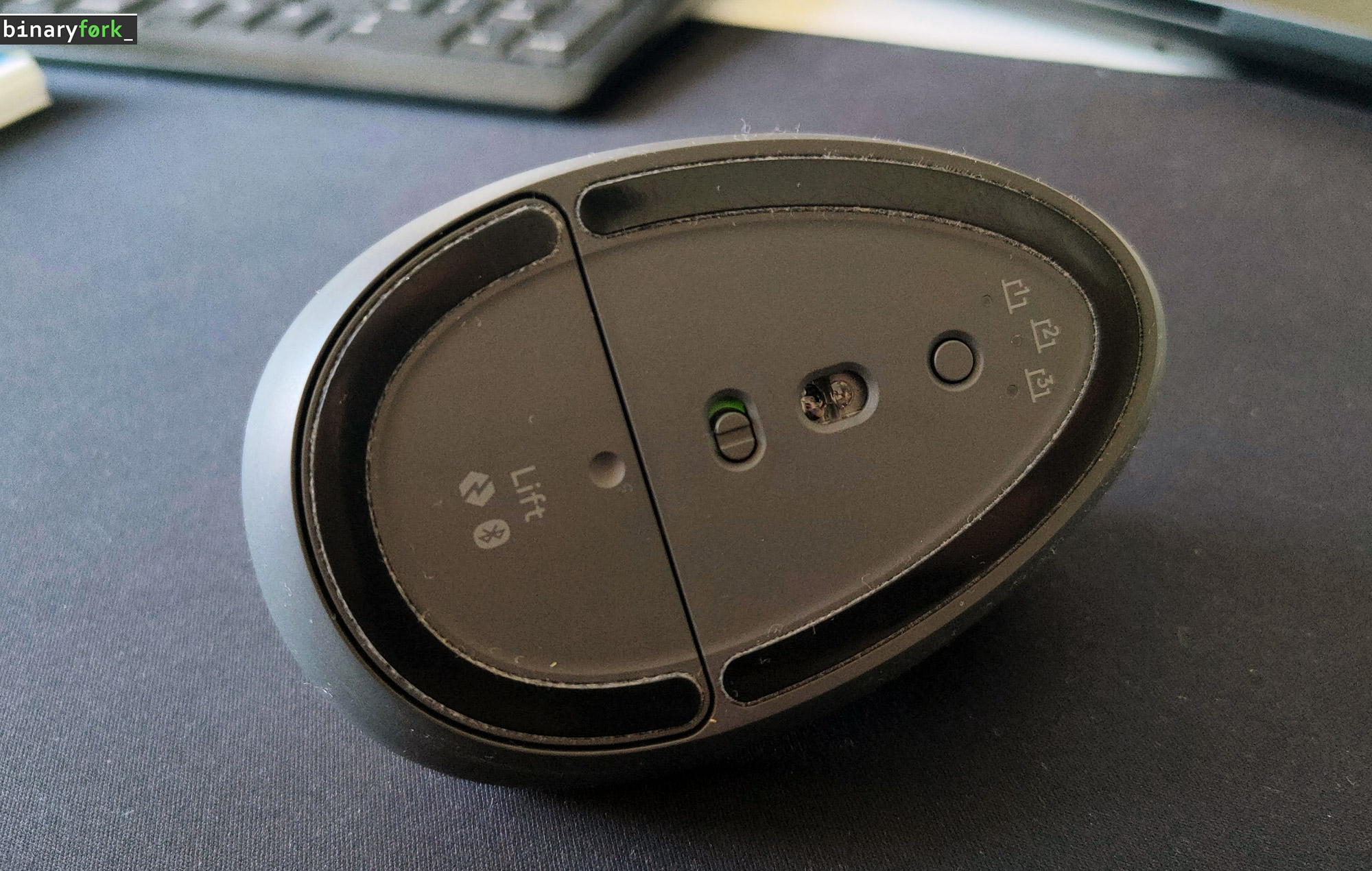
The multi-device capability through Logi Flow is genuinely useful for people who work across multiple computers. Switching between devices takes about two seconds, and the connection remains stable throughout the day.
Setup is refreshingly simple – pair via Bluetooth or plug in the receiver, and you’re ready to go. Logitech Options+ software unlocks the full customization potential, allowing button programming and DPI adjustment.
Who should buy the Logitech Lift:
- Office workers experiencing wrist discomfort
- Users with small to medium-sized hands
- People seeking their first vertical mouse
- Multi-device users who value seamless switching
- Budget-conscious buyers wanting quality ergonomics
Avoid if you:
- Have large hands (consider the MX Vertical instead)
- Primarily game competitively
- Prefer ultra-lightweight mice
- Need extensive button customization
Final verdict and recommendations
The Lift succeeds brilliantly at its primary mission – providing comfortable, ergonomic computing for everyday users. While it won’t replace a dedicated gaming mouse or satisfy power users who need premium features, it delivers exceptional value for its intended audience.
For anyone dealing with wrist discomfort from traditional mice, the Lift represents one of the best entry points into ergonomic computing. The reasonable price, excellent build quality, and gentle learning curve make it an easy recommendation for office workers and productivity-focused users.
The Logitech Lift proves that ergonomic mice doesn’t have to mean expensive or weird. It’s a thoughtfully designed mouse that prioritizes long-term comfort without sacrificing everyday functionality. Whether you’re dealing with existing wrist issues or simply want to prevent future problems, the Lift offers a compelling solution that will last you a long time.
Your wrists will thank you, and your productivity won’t suffer – what more could you ask for in a mouse?
What’s your experience with vertical mice? Have you made the switch from traditional designs, or are you still on the fence? Drop a comment below and share your thoughts
